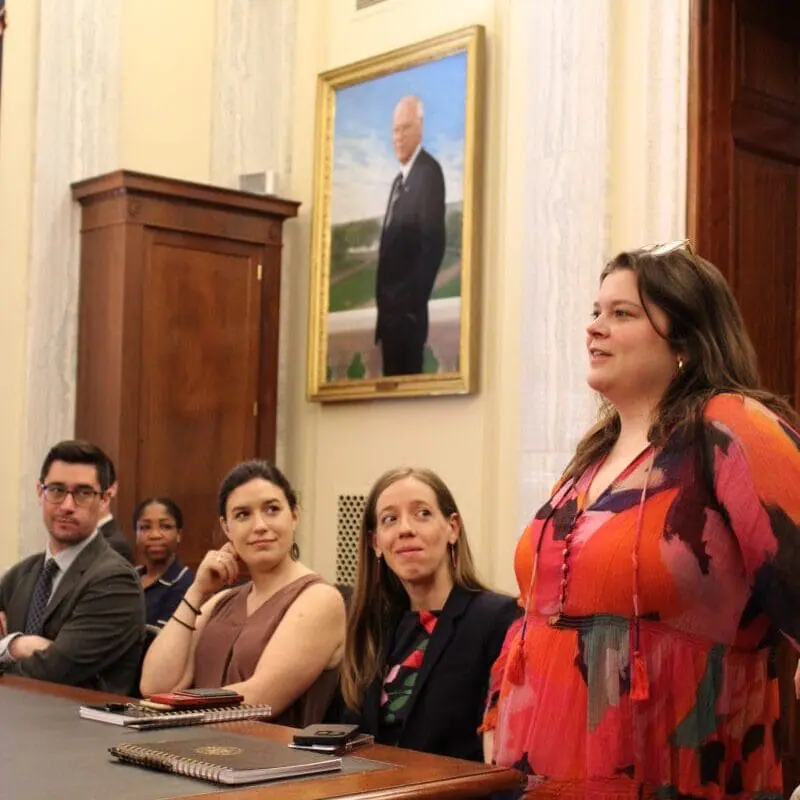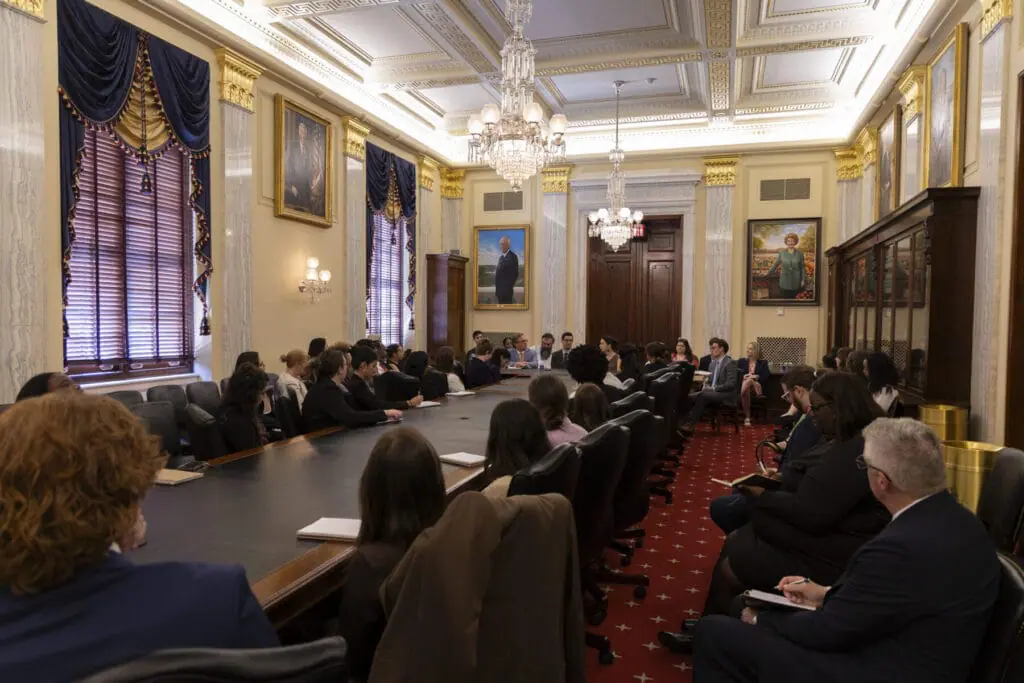By Jacob DeFant, ASU sustainable food systems graduate student

On Thursday, May 2nd, 2024, Sustainable Food Systems graduate students undertaking the Applied Food Policy Immersion course traveled to the Russell Senate Office Building to meet with Senate Committee on Agriculture, Nutrition, and Forestry staff.
The U.S. Senate Committee on Agriculture, Nutrition, and Forestry, a venerable institution established in 1825, is a testament to the nation's enduring commitment to agriculture, farming, forestry, and food. This standing committee of the Senate is delegated to oversee legislation and policies in these crucial sectors. One of its primary responsibilities is to aid lawmakers in crafting the ‘farm bill,’ a comprehensive legislation that addresses a wide range of issues, including agricultural production, research and extension services, farm credit and financial stabilization, rural development, and nutrition programs like the Supplemental Nutrition Assistance Program (SNAP), every five years. It also wields significant influence in shaping policies related to conservation and forestry. Through its hearings, legislation drafting, and oversight, the committee ensures the robustness of the nation's agricultural sector and the welfare of its rural communities.

Upon arriving at the Russell Senate Office Building, we took our seats around the table used to officially host lawmakers on the Senate Ag Committee, a preview of what was to come for future food system leaders. Our cohort was lucky enough to meet with many staff members, including Chris Neubert, Allie Lock, Mikayla Bodey, Donald Gloede, and Steven Wallander. The staff took turns sharing insights from their various roles at the committee, what it’s like to work on a farm bill, and working in Washington advising legislators on food and farm policy. The committee also discussed the importance of maintaining gains for rural communities, including funding for resilient food system infrastructure, nutrition programs, and rural development. Writing legislation is a political process; therefore, compromise is to be expected. However, the consensus of the committee staff was that their priority had to be programs and funding that protected and supported small to midsized farmers and the health of rural communities. Our visit to the Senate Agriculture Committee came at an exciting time. On the morning we were scheduled to meet with the committee staff, the Senate and House agriculture committees released competing outlines for the 2024/25 farm bill. This allowed us to witness the politics of the farm bill in action and ask the chief experts about the tools and tactics involved in drafting and passing a bill. With the release of the Chairwoman’s outline, staff and their stakeholders can begin generating support for the committee’s priority programs and policy issues. Committee staff discussed the importance of early messaging in the legislative process to establish a strong narrative leading into the actual authoring of the bill. According to Steven Wallender, key to this year's messaging was releasing a more detailed and thorough bill outline than that of the opposite legislative chamber. By releasing their outline after the House, the Senate Agriculture Committee aims to start negotiations for the next iteration of the farm bill on stronger footing.
The visit to the Senate Agriculture Committee was a defining moment for our cohort, providing us with a rare glimpse directly into the legislative process during a critical time for agricultural policy. Engaging with the committee staff and observing the early stages of the farm bill's development gave us valuable insights and inspiration. As we return to our studies, we carry with us a deeper understanding of the complexities of food policy and a renewed commitment to advocating for sustainable and resilient food systems. This experience marks a significant step in our journey toward becoming influential food system leaders.
This blog is part of a series from the Swette Center’s annual Food Policy Immersion, a required course in their two graduate programs. Students met with federal food and agriculture focused officials at USDA, the White House, and Congress alongside many other important influencers of policy in industry and non-profits.